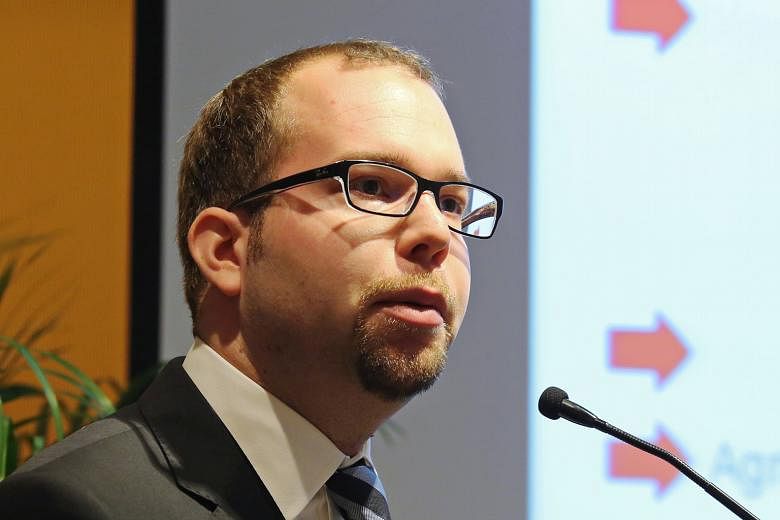The strategy of getting workers to acquire deep skills is the way forward, but they need to look beyond this to learning to master "competencies", says an expert on the future of work.
For example, knowing how to use an adjustable wrench or how to fix a broken-down car are skills. But being able to repair any car irrespective of its make, model and the latest technologies is competency, says German economist Michael Zibrowius, 32, who works at the private German think-tank, the Cologne Institute For Economic Research.
So training should not specify the exact skills that should be taught, but look at what competencies students should have after graduation, he says, adding: "This way, you also do not need to keep adapting curricula every time new technologies are introduced."
Put another way, it was not enough to know how to lay bricks on mortar; one had to understand why and how a wall functioned in the first place because "you may know how to build a wall in 2017, but the way to build it in 10, 20 or 30 years might be entirely different".
The Lee Kuan Yew Centre for Innovative Cities in the Singapore University of Technology and Design invited Dr Zibrowius to speak at its high-level international roundtable on the future of the global economy last month.
In an e-mail interview last Tuesday, he says the Committee on the Future Economy's call for everyone here to harness deeper skills, rather than just chase paper qualifications, "points in absolutely the right direction" to stay employable in the digital age. He praised the CFE's emphasis on learning continuously while earning a wage, through "modularised" online training programmes that are easily accessible to all - and that, most importantly, give you the skills most needed in the job market at any point in time.
In particular, he says, the idea of relying on training modules "is very helpful because it offsets both employers' and employees' fear that retraining requires endless time and effort". So the opportunity to absorb relevant skills one module at a time is "very efficient", as long as those providing these modules are properly accredited and their training is of top quality and relevant.
Noting that the CFE welcomed company-led worker training of these deeper skills, he cautions that for this to succeed, the size of the company matters a lot. For example, SMEs with limited training budgets might explore allowing employees to use their personal devices to film how the best among them worked, and learn from such on-the-job videos. But big firms with deeper pockets have the manpower to anticipate the skills needed in future in more sophisticated ways.
Dr Zibrowius said: "Siemens, for example, analysed 25 job profiles throughout its value chain and identified the key skills relevant in each job today and tomorrow. It was then able to rearrange its vocational training schemes to reflect properly the skills needed in future." The German company is Europe's largest in manufacturing and electronics.
He feels acquiring deeper skills has to start as early as from primary school. In India and Mexico, he points out, "they try to infuse practical elements in their existing school systems so that people have an idea of 'How do I work given what I have learnt?' and 'How does this theory actually work in practice?'."
Cheong Suk-Wai


